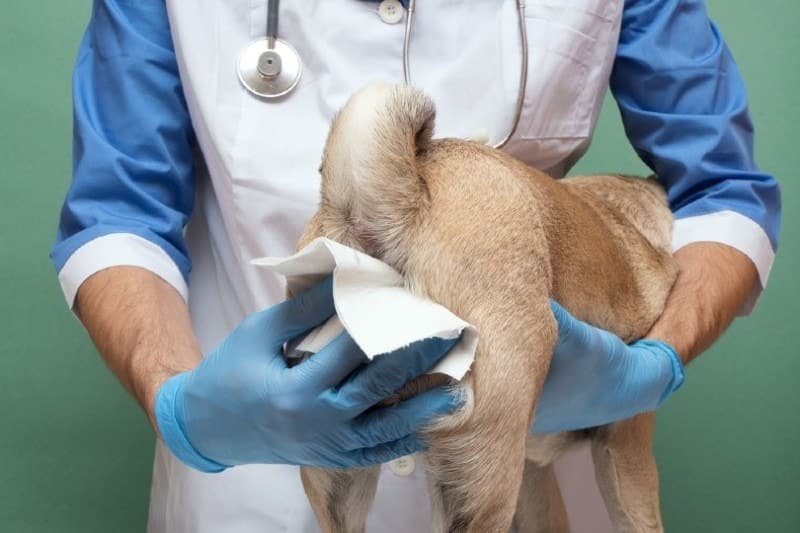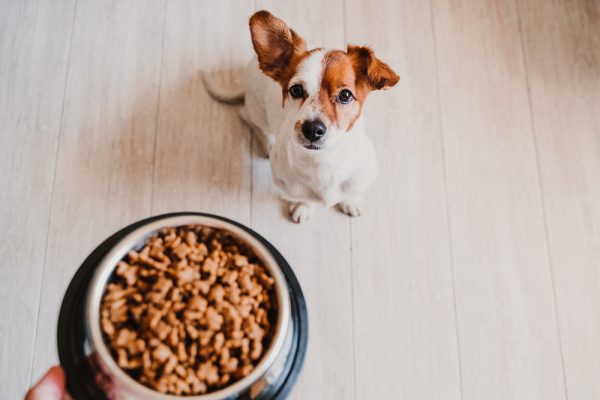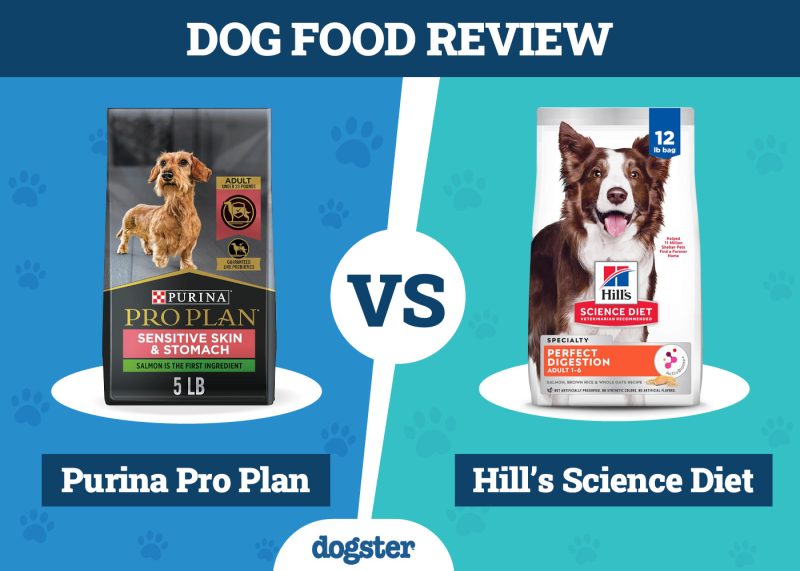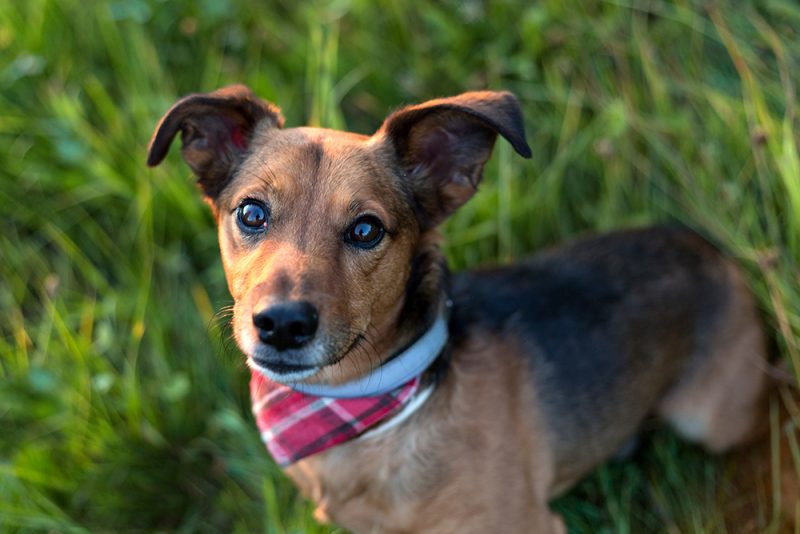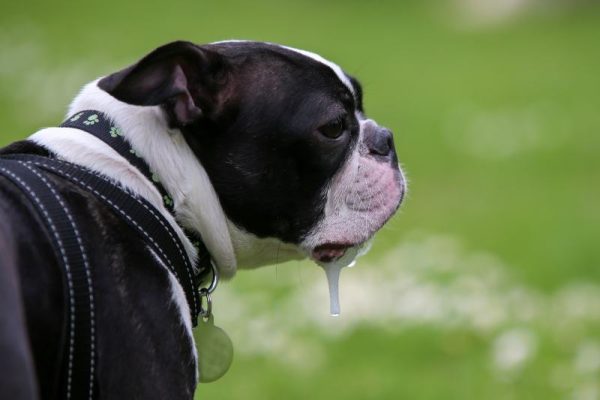Your dog’s anal glands aren’t the most exciting topic of conversation, but they’re an important part of healthy function. While many dogs go their entire lives without any issues with their anal glands, problems can arise that may lead to painful complications for your dog. Dog anal glands are small sacs located on either side of your dog’s anus. They secrete fluid meant for scent-marking territory. When your dog poops, the fluid from the glands is released, but some dogs don’t release that fluid naturally. If that happens, your veterinarian may need to remove the excess fluid for them to avoid bigger problems. It’s important to recognize the signs that your dog may need their anal glands expressed, as well as the signs of issues like infections and abscesses, to ensure you can recognize a problem.

What Is Anal Sac Disease?
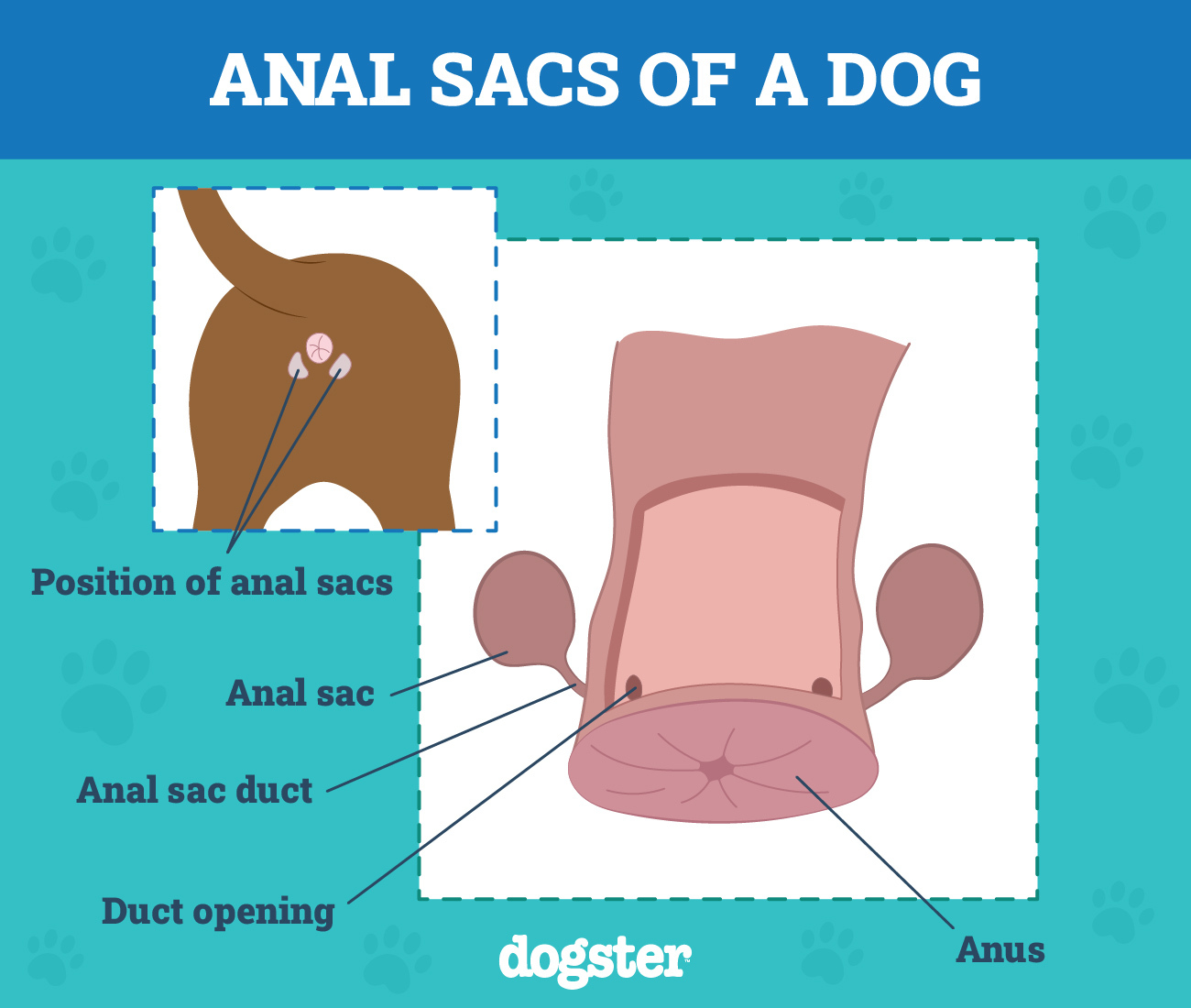
Anal sac disease is a broad term that covers all the possible conditions of the dog’s anal sac, including:
- Anal gland impaction: When the anal glands are impacted and they don’t empty properly, the fluid in them thickens and can become solidified.
- Anal gland infection: Anal glands can become infected, leading to pus buildup inside the gland. Eventually, this can cause an abscess which can rupture.
- Anal gland cancer: Cancerous tumors can originate from the anal glands, including adenocarcinoma.
If you are concerned about the health of your dog’s anal glands, make an appointment for an exam with your vet. They can express your dog’s anal glands if necessary and identify any other causes for concern, including infections or possible cancers.

The 8 Signs Your Dog Might Need Their Anal Glands Expressed
1. Scooting
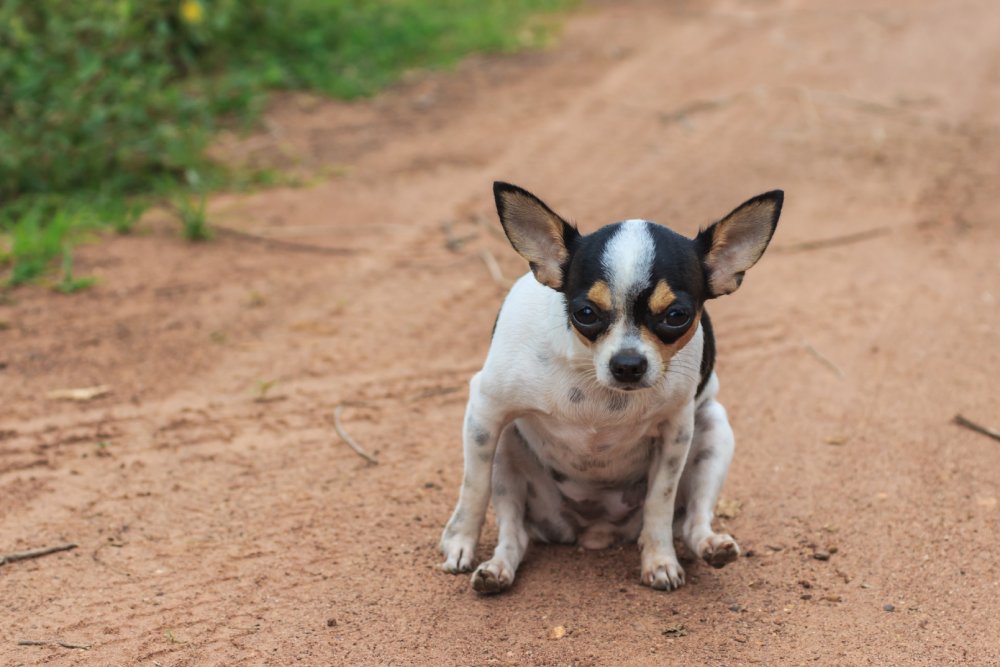
Scooting is one of the clearest signs of anal gland problems. Your dog may drag their hind end across the ground or floor to relieve the pressure and discomfort in the glands. This is also a natural response to itching, which is common with full anal glands.
2. Licking or Biting Near Their Butt
Dogs often lick or nip at areas that cause them pain or discomfort. If your dog is licking or biting near their hind end or anal area excessively, it could be to relieve the pain or clean discharge coming from their anal glands.
If you are looking for the perfect product to clean your dog's sensitive areas, Hepper's Wash Wipes are our recommendation, plus it's a great on-the-go option. These premium wipes are thick and durable enough for the toughest of paw messes, while still being soft enough to use on your dog's ears or eyes. Formulated with pet-friendly, hypoallergenic ingredients they are the ideal product for all dogs of all ages, skin conditions, or sensitivities.
At Dogster, we’ve admired Hepper for many years and decided to take a controlling ownership interest so that we could benefit from the outstanding designs of this cool pet company!
3. Straining to Poop
If your dog seems to be straining or struggling while pooping, it could be caused by hard stools and constipation, or blocked, abscessed, or inflamed anal glands that make pooping uncomfortable.
4. Obvious Discomfort While Pooping
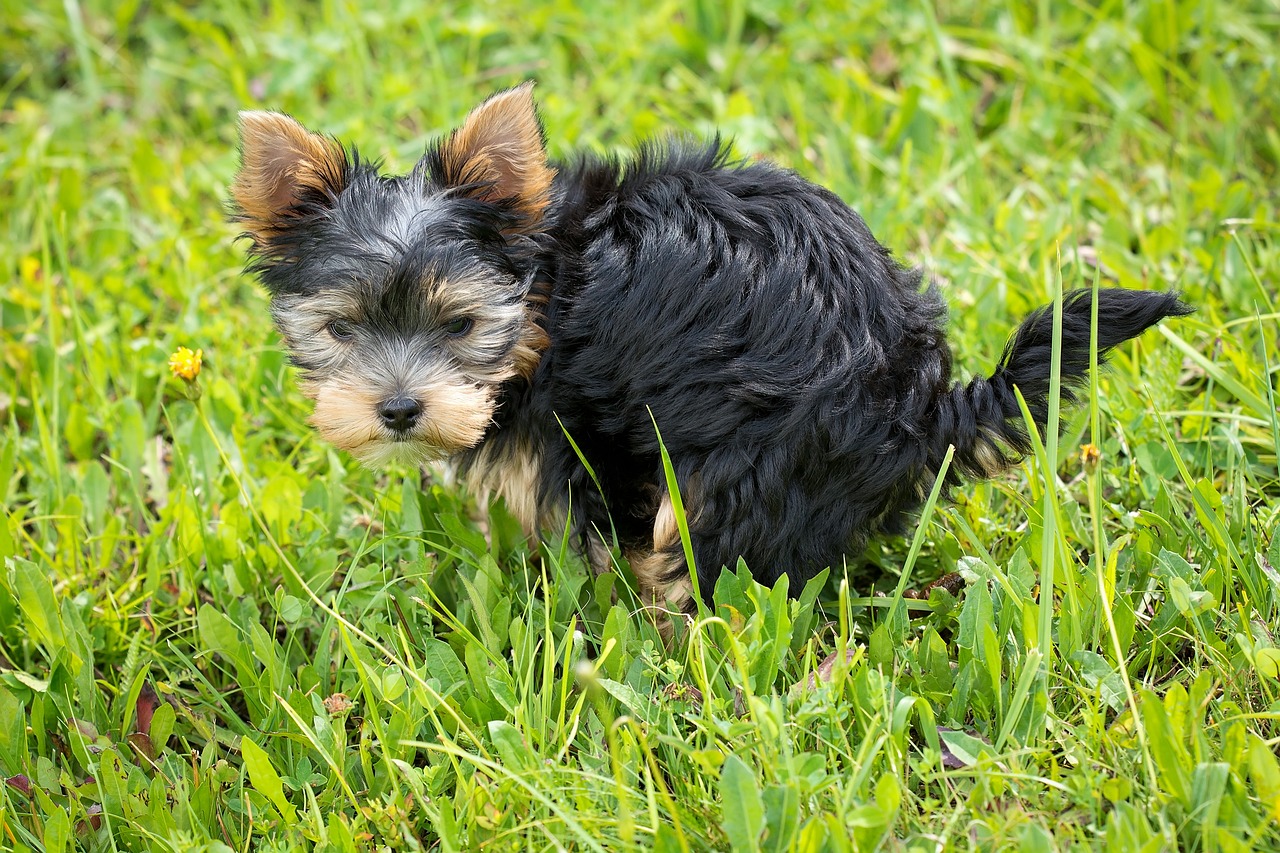
If your dog seems uncomfortable while pooping, such as looking distressed or acting reluctant to poop, it could be a sign that the anal glands are full and causing pain. This may also be a sign of more serious anal gland issues, such as impacted, infected, or abscessed anal glands, which cause pain.
5. Reluctance to Sit
If the fluid in your dog’s anal glands has thickened and can’t be expressed naturally, or their anal glands have become impacted or infected, it can cause discomfort. They may be uncomfortable sitting and refuse to follow the command, even if they’re otherwise obedient.
6. Anal Discharge or Odor
Anal glands that are impacted or infected can cause discharge. As the anal gland fluid thickens, the pasty brown discharge clogs the glands and creates hard masses. With infection, the discharge may be greenish-yellow or bloody. Anal gland fluid also has a distinctive “fishy” odor that’s foul, which you may notice if your dog’s anal glands need to be expressed.
7. Swelling or Redness in the Anal Area
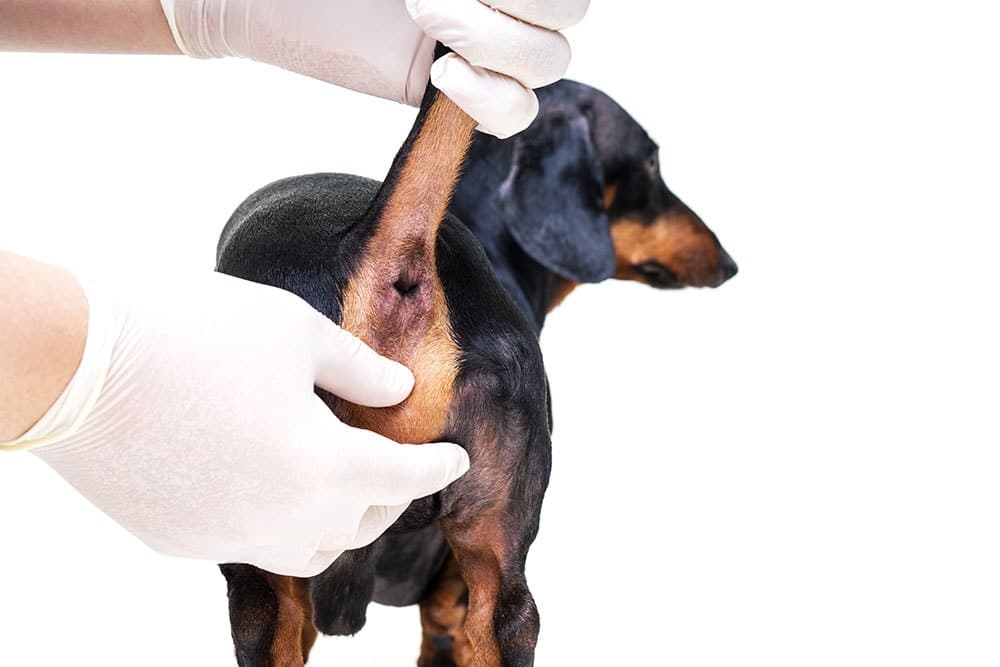
Swelling or redness around the anal area, especially next to or inside the anal opening, is a good indication that your dog’s anal glands need to be expressed or may be infected. An infection is usually painful and may lead to an abscess that can rupture, causing extreme pain for your dog.
8. Behavioral Changes
If your dog’s anal glands need to be expressed or have begun to develop problems like impaction or infection, it may lead to pain and discomfort. Your dog may begin to show behavioral or emotional changes like frequent crying or whimpering, loss of appetite, and lethargy.
If your dog is showing any of these signs and you are seeking the best possible treatment for your pup, we recommend speaking with a vet for further advice.
If you need to speak with a vet but can't get to one, head over to PangoVet. It's our online service where you can talk to a vet online and get the advice you need for your dog — all at an affordable price!

Conclusion
Some dogs go their entire lives without needing their anal glands expressed, but some dogs need a little extra help. If your dog shows signs of impacted anal glands, don’t ignore it! Make an appointment with your vet to have your dog’s anal glands expressed to not only relieve discomfort but avoid serious complications in the future.
Related reads:
Featured Image Credit: Yekatseryna Netuk, Shutterstock
